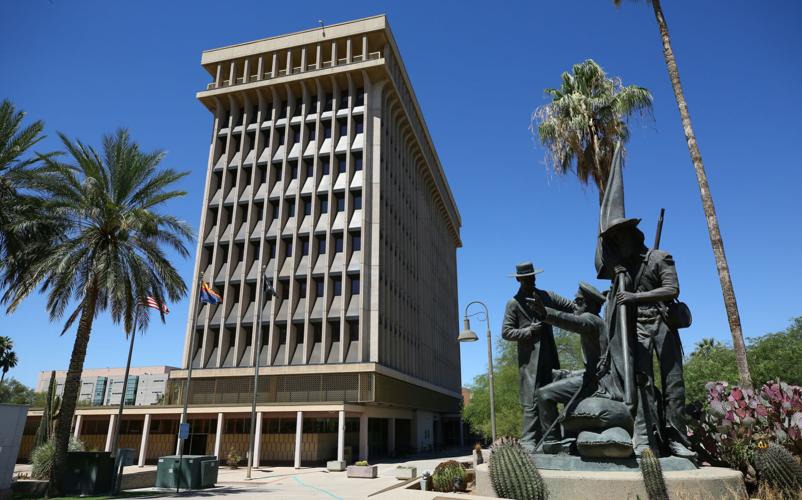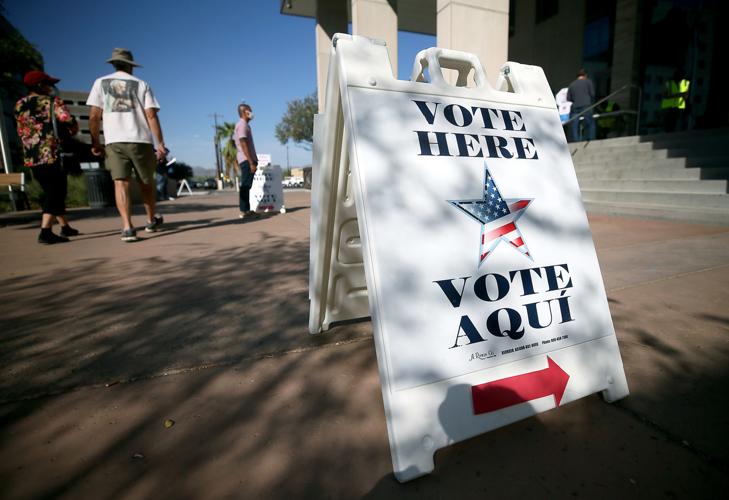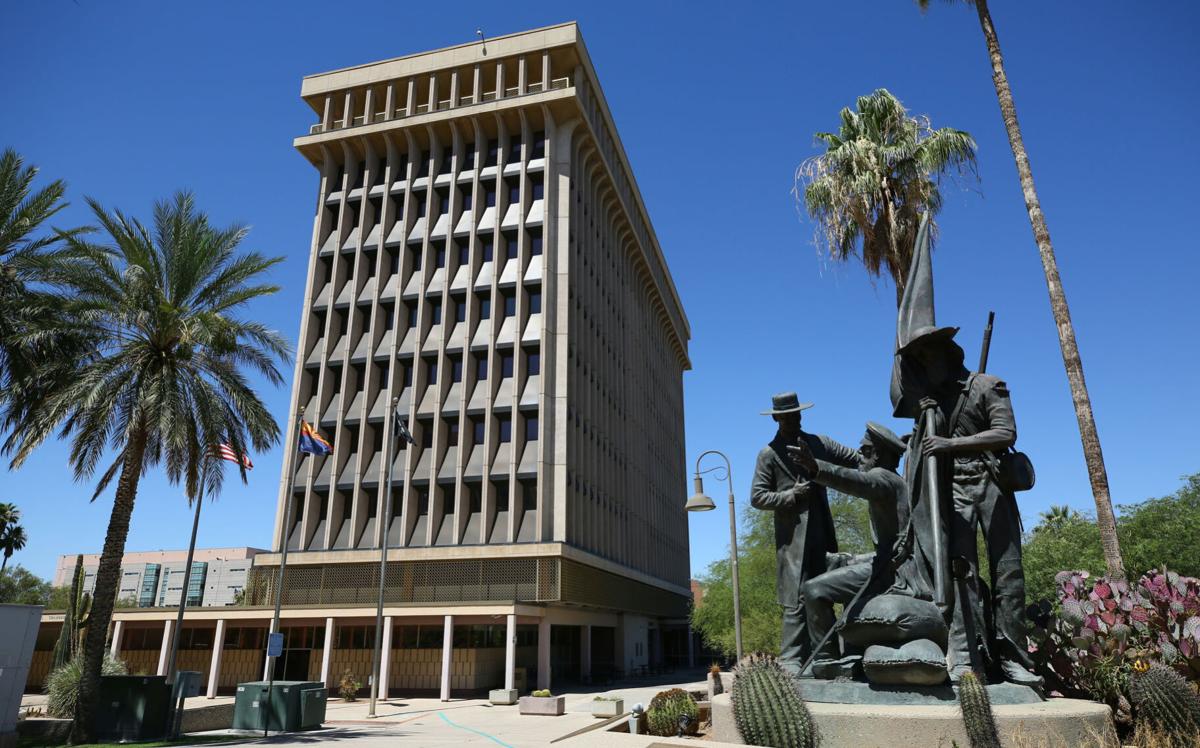PHOENIX — Some Arizona lawmakers want 19 cities to be stripped of their right to home rule, simply to help get Republicans elected to the Tucson City Council.
A proposal awaiting action by the full Senate would ask voters to repeal a provision in the Arizona Constitution that allows cities to adopt charters. These charters, approved by local voters, can govern a host of issues about how the city is run, ranging from whether to have a city manager, to the size of the council, to the dates for an election. It is is on the Senate calendar for Monday afternoon.
Sen. Justine Wadsack, R-Tucson, said she’s interested in killing just one local right: The ability to decide how to elect council members. The object of her ire is the unusual — and unique in Arizona — system by which Tucson chooses who will serve on its council.
Only thing is, lawmakers lack the power to simply override what Tucson voters have decided. Judges have ruled the method of electing council members is a matter of strictly local concern, protected by Tucson’s status as a charter city.
So Wadsack has proposed Senate Concurrent Resolution 1023 to remove the authority to form charter cities. If approved by legislators and ratified in 2024 by voters, it would free state lawmakers to tell Tucson how it must run its elections.
But SCR1023 also would undermine the charters of 18 other cities, repealing their own locally written laws and making them, too, subject to the whims of state lawmakers.

Tucson’s system at issue
The fuss is over Tucson’s “modified ward’’ system.
Candidates are nominated by voters in the wards in which they live. That ensures each area has a local representative.
The candidates then have to survive a citywide vote to get elected, a provision intended to ensure each council member is responsive to the wishes of all city residents and not only those in their ward.
Wadsack said people who may live miles away from a district should have no say in who represents that area.
But there’s something else: The current system works against Republicans.
Only one of Tucson’s six wards is politically competitive. GOP registrants are outnumbered by more than 2-1 on a citywide basis. And that means Democrats, as the majority in the general election that decides who gets on the council, can override the ward voters’ preference.
Other cities also oppose measure
Wadsack’s idea has drawn opposition from the League of Arizona Cities and Towns. Lobbyist Tom Belshe said the people who wrote the Arizona Constitution said people living in cities should be able to decide if they want a charter and the home rule ability to craft their own laws that comes with it.
“This was meant to be a local decision,’’ Belshe told the Senate Government Committee.
Also important, he said, is that charters can impose more limits on city officials than Arizona law requires. For example, he said, only charter cities can impose term limits on mayors and council members.
“Taking away this authority goes against the idea of local control,’’ Belshe said.
Then there’s the fact that the effort in SCR1023 to improve the odds of Republicans getting elected in Tucson would override the home rule rights of the 18 other cities with charters — and the ability of other Arizona cities to adopt one in the future.
Lobbyists from Chandler, Goodyear, Peoria, Scottsdale and Tempe, all charter cities, registered objections, along with Tucson’s lobbyist Andrew Greenhill.
Sen. Priya Sundareshan, D-Tucson, questioned Wadsack’s approach.
“I find this referral to the ballot a very extreme response to a particular disagreement with our city of Tucson,’’ she said, saying that stripping home rule simply to change the election procedures would have “unintended consequences’’ in the other 18 charter cities.
Wadsack, however, said there is no reason that some cities have the right to refuse to follow certain state laws simply because they have a charter.
“I don’t know very many other states in the union that the cities have the ability to supersede state law,’’ she said. “I would like to see Tucson follow the same rules as the rest of the state.’’
Sen. Juan Mendez, D-Tempe, whose city also has a charter, poked fun at the claim that every city should fall into line with what the Legislature decides.
“If this body is so insecure (that it doesn’t want) to have any other entity have local government and local control, we have much bigger problems,’’ he said.
Mendez pointed out that SCR1023 and its bid to eliminate charter cities would be decided on the 2024 ballot not just by those living in those communities but by voters from throughout the state who are unaffected.
“From an equity standpoint, it doesn’t make sense to let the rest of the state’s voters tell citizens of these communities how they should be governed,’’ he said.
Fallback proposal
While SCR1023 was approved by the GOP-controlled Senate Government Committee on a party-line vote, Wadsack has a fallback proposal should this one falter amid opposition from other charter cities.
Her SCR1027 would put a provision in the Arizona Constitution saying that if cities have a ward system, only those who live in that ward can vote on a candidate at any stage of the election process. That clearly would affect only Tucson.
“We don’t have fair elections,’’ Wadsack said. “Our council members are being voted for by voters that are far outside of their area of interest.’’
She said what she wants is no different than what happens at the Legislature, where lawmakers are chosen solely by people who live in their own districts. Ditto county supervisors who are elected by district. “The city needs to be the same,’’ Wadsack said.
Greenhill said Tucson residents apparently like the system, pointing out that a ballot measure in the 1990s to change it was rejected.
“Our system creates accountability to both the geographic ward and the city as a whole,’’ he said.
Greenhill said putting the measure on the statewide ballot in 2024 would be inconsistent with Wadsack’s desire to have only those in a given council district decide what is best for themselves.
“Please consider that asking 90 other cities and towns, and all the unincorporated people across our state, to interfere in one city’s election system seems at odds with that very principle,’’ he said.
Republicans on the Government Committee disagreed, supporting this change, like Wadsack’s other one, on a party-line vote.
Courts have ruled for Tucson’s system
This isn’t the first bid by Republicans to overturn Tucson’s voting system.
In 2009, Jonathan Paton, then a Republican state senator from Tucson, pushed through legislation that would have voided the modified ward system. It also would have barred cities from conducting local elections where the candidates’ political affiliations are listed on the ballot.
That measure was overturned by the state Supreme Court in 2012. The justices said Tucson, as a charter city, has a right under the Arizona Constitution to decide whether to conduct partisan elections and how to elect council members.
Undeterred, the Public Integrity Alliance filed suit in federal court on behalf of several Tucson Republicans charging that the system was an unconstitutional violation of the Equal Protection Clause of the U.S. Constitution. The alliance argued that the system gives some voters more power than others and, in some cases, effectively nullifies their votes.
That contention was rejected by the 9th Circuit Court of Appeals.
“Tucson’s hybrid system for electing members of its city council imposes no constitutionally significant burden on voters’ rights to vote,’’ the appellate court ruled. “And Tucson has advanced a valid, sufficiently important interest to justify its choice of electoral system.’’
The U.S. Supreme Court put the issue to bed in 2017 when it refused to disturb the 9th Circuit ruling.
Tucson’s voters will approve or deny a new agreement with Tucson Electric Power that would increase electricity bills by .75% in a May 16 special election. Video courtesy of City of Tucson.






